International Co-Production Built on Lots of Discussion
Fujiwara: To pick up on the talk we've just had about choreography, I'd like to ask you about Girl X, the collaboration (international co-production) you did with Hanchu-Yuei. Of course, those of us watching could not completely tell to what extent that work reflected Hanchu-Yuei or Suguru Yamamoto's scheme and where the ideas of Democrazy Theatre or you started. Was there some sort of a division of roles carried out?
What I mean by that is, I have also seen the original version of Girl X, and the version done in collaboration with Democrazy Theatre surprised me in that it was considerably different from the original work. We talked earlier about a game-like way of doing things, and I think there was absolutely a game-like element in the collaboration version of Girl X. The words projected on the wall as captions gave commands to the actors. They had to dance according to those commands. I thought that was probably the part where your idea came into play.
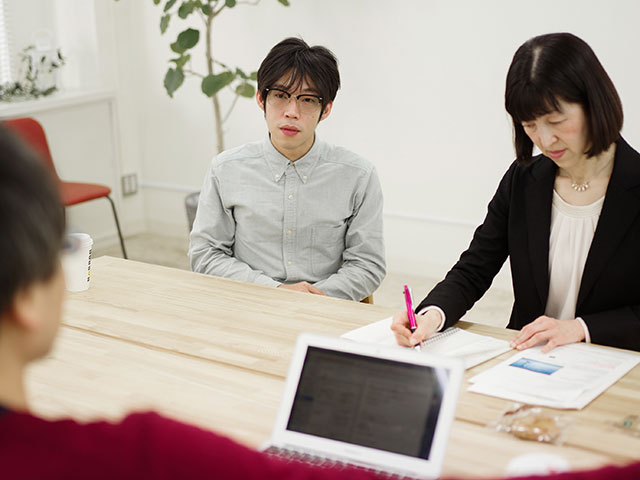
Thanapol: Ah, yes. For Girl X, I spent quite a long time with Suguru-san engaging in a lot of discussion. At first, Suguru-san came to Thailand and we spent a month creating it together. And then we went to Japan, and I remember staying two weeks to do the actual show. While there was not really a clear division of roles, we shared ideas and went about creating it while discussing things repeatedly. That said, I was mostly in charge of the actors' bodily expressions and movements.
Fujiwara: How did you feel about the technique of using a projector to show the words on a screen, which Hanchu-Yuei is good at?
Thanapol: It didn't feel particularly odd to me. That's because in my own works, too, I have used a projector to portray text and words. What was done a bit differently, though, was that, in my case, the text I project is mostly conversational in style, whereas in the case of Suguru-san, rather than conversation, he uses it in a way that also projects the story itself in text form.
Fujiwara: In terms of that text projection―which is a characteristic of Hanchu-Yuei, and the anger and sense of justice of the man who appears holding a hammer―I felt like those elements from the original were sort of reconfigured into a different form in the collaboration version. And it also had a uniquely Thai context flowing into it. For example, the anger that was expressed there could also be seen as the anger aimed toward the current situation in Thai society. Of course that is an element that was not in the original work, but would it be right to assume that it contained the anger that you feel personally?
Thanapol: Yes. And that hammer was a very important point. When I asked Suguru-san, "Why did you decide on a hammer?" he answered "In the original version this is a weapon." But what I was unsure about was that, in Thailand, when it comes to dangerous weapons there are many other choices, and for a person to even have a gun, for example, is not as difficult as it is in Japan. So I wondered why he chose a hammer. We talked about that point quite a bit.
Fujiwara: You mean about the possibility of having him hold a gun instead of a hammer?
Thanapol: Yes, about maybe choosing a different weapon or something. But in the end we settled on leaving in the hammer as the weapon, as one of the elements of the original version. That said, in the collaboration version it is used with a slightly different meaning, but still it is an object of power to me; we can use it as a tool for positive creation but also we can use it for destruction too.
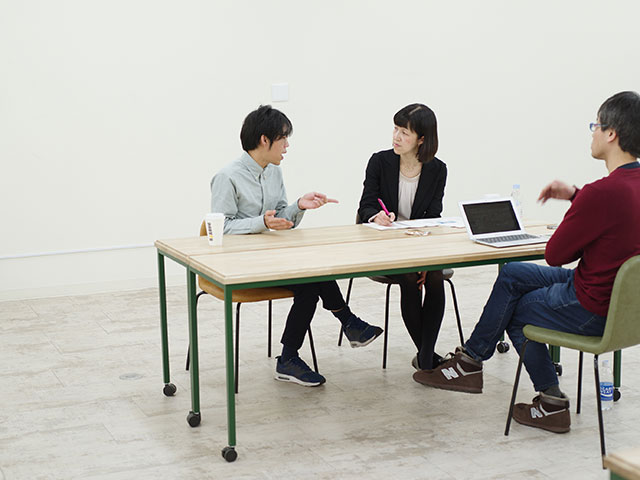
The Strategy of "Games"
Thanapol: In addition to that, just like in the original, we kept the setup of having two actors with different characters, but we changed their environment completely and put them under a system that was like a game, and that point differs substantially.
Suguru-san told me that in the original Girl X, he wanted to represent a questioning of the Japanese society and systems. In particular, he said he focused on Japanese society after the Great East Japan Earthquake. In the collaboration version as well, the theme of questioning society and authority is the same. But this one doesn't particularly have a story like the one that was in the original version. By visualizing society and the system as a game, we attempted to question authority. That's because even though we live under all sorts of authority, in reality we don't understand exactly where that authority comes from.
Fujiwara: I certainly thought of the game where sometimes unreasonable commands were given by way of captions as a symbol of enigmatic authority. But in the case of Thailand, censorship is done overtly and openly, right? Does that fact probably have some sort of impact not only on Girl X but on your way of expressing things?
Thanapol: Censorship has a very large impact on my works. In Thai society when an artist creates a work, it is quite difficult to employ direct expression or communication. Within Thailand, we cannot create a piece without thinking of ways to get our point across that will not trigger censorship, such as using expressions that are a little circuitous or removed from what we want to say.
Fujiwara: In that case, is your adoption of the game style basically a type of loophole, or a technique, or a strategy?
Thanapol: You could say that. As humans, all of us live under some kind of system. What games mean to me are quite simply the discipline and rules of society that we are expected to follow. For example, even when children play games, they follow rules as they do. I think societies have the same arrangement.
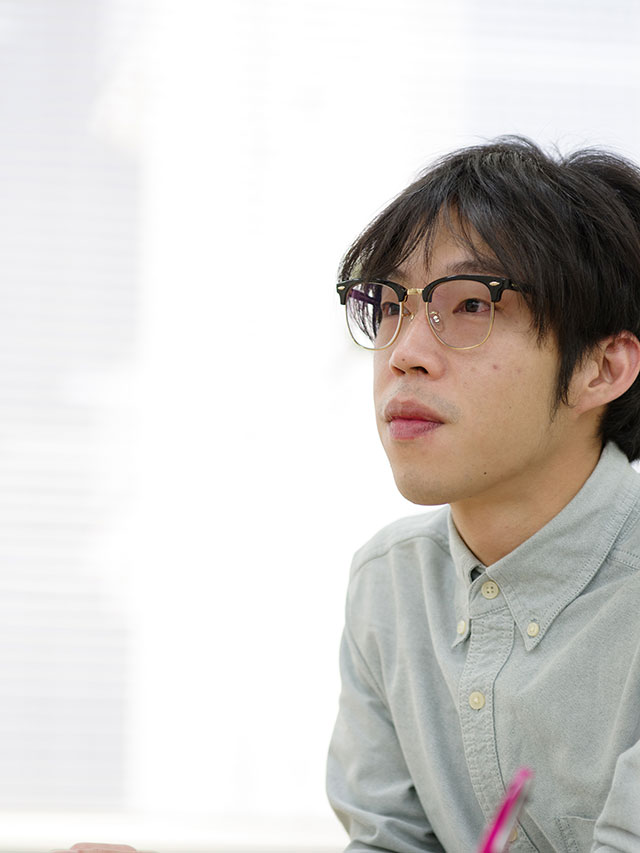
Fujiwara: In your collaboration with Hanchu-Yuei, was there anything that you struggled with or perhaps a part that affected your own activities?
Thanapol: There are a lot of things that I struggled with [laughs]. Most of all, Suguru and I have directing methods that are completely different. The same goes for our convictions regarding physical expressions. Naturally, the countries and societies where we were raised are completely different, so our values and our experience with art appreciation also differ, and I think that can't be helped.
Despite that, there were a lot of very interesting things, and I learned a lot from it. In the beginning, we were not understanding each other at all, but as problems arose we had conversations, and through that, ultimately we reached a point where when the other just moved, even slightly, we knew what they were thinking. The way I see it, when it comes to collaboration, perhaps it's not the finished work so much as the creation process itself that is important. I feel like the fact that two artists were able to learn from each other and deepen their understanding made it a wonderful process.
Observations from Working Overseas
Fujiwara: In recent years you have also worked in Germany.
Thanapol: I have done two projects in Germany. First, in June 2016, I staged my work Hipster the King at a festival called Theaterformen. And then there's a work called HAPPY HUNTING GROUND for which I went to Badisches Staatstheater Karlsruhe and collaborated as a director.
For Theaterformen, four of our company members went to Germany. Democrazy Theatre has different people working on different pieces, and for Hipster the King those four were the ones involved. The first opportunity we were invited for was TPAM2015, and Theaterformen's artistic director Martine Dennewald had seen Girl X. After that, we met her again at another festival in Germany, and at that time we received an invitation.
Fujiwara: So TPAM was the original catalyst, then.
Thanapol: Yes, that's how it started.
Fujiwara: How was the response and the feedback in Germany? It's a considerably different environment than that of Thailand and of Japan.
Thanapol: The response was very good. The German audiences are, in a way, more thoughtful by comparison, so my concept is an extremely good fit―even in terms of the way of thinking about politics and society. It might be because they are a critical thinking society and they dare to think and have their own interpretations in which my work needs active audiences.
Fujiwara: So was the other collaboration you did in Germany, HAPPY HUNTING GROUND, after Theaterformen?
Thanapol: We actually showed it after that in September 2016, but the discussion for it began before our showing at Theaterformen. It was a collaboration with Badisches Staatstheater Karlsruhe. I was invited as the director, and the performers were four Thai female dancers and two German male theater actors. We took Thai actors to Germany, and the German actors came to our theater in Thailand, so we created it through two patterns, and we staged it in both theaters. We also worked with a German dramaturg.
As far as the circumstances, at first a German Journalist and theater critic, Mr. Jürgen Berger said he wanted to show my piece in Germany. Then that turned into a talk of making it into an international co-production. Ultimately it turned into a documentary performance with an interview format, and it was a German person who wrote the text for it.
Fujiwara: In Germany, dramaturgs and actors are figures that are actually firmly embedded in the theater system. Moreover, if a German person wrote the text, I bet that posed another challenge for you, right?
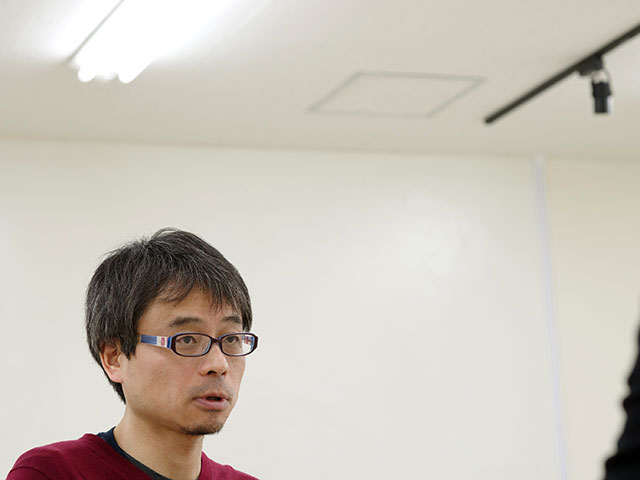
Thanapol: There were a variety of problems, but anyway we had lots of discussions, and I tried to convey my way of doing things and get them to understand it, because we all had to walk in the same direction. But what was fortunate was that the dramaturg, Ms. Sarah Israel, who had the role of researching and making selections together, was very thorough, so she became a partner who really helped me. She was like a companion for everyone in the project having small talks with performers, helping to explain my idea to the performers clearly and being the one in the project whom everyone can talk to openly.
Fujiwara: For someone as particular as you are about the body when directing, how did the bodies of the German actors turn out for you?
Thanapol: Well, in terms of the body shape, it's completely different from Thai people. Thai people look more delicate and brittle. But, although the appearance is frail, I felt like Thai actors were actually more patient and persevering.
Fujiwara: Oh, I have the image of German actors as having a strong professional mindset, but the German actors were less patient [laughs]?
Thanapol: I mean that in the sense of physical endurance. For the German actors, before they would move their bodies for me, I first had to explain the meaning to them, and they wouldn't move until they understood it. But in the case of Thai actors, it's not so much whether they understand it or not, but there's a spirit of "just try and see." Normally in my working process, I always create a bunch of materials and throw it away. I also try different ideas even when sometimes they don't seem to be connected to the concept that we are working with; I try hard to explain to the performers why I would love them to try this or that even when it sometimes seems like nonsense. For Thai performers who we have worked with before already know that I need help to visually materialize what I had in my mind or gut and then I can process further from what I see.
Fujiwara: I see. I imagine that, including the collaboration with Hanchu-Yuei we discussed earlier, being exposed to all sorts of cultures and values like that was probably a big experience for you. After your two experiences in Germany, when you came back to Thailand was there any change in your perception?
Thanapol: While it's not that there was an enormous change, by working with other people like that, I think I gained the courage to set foot into areas I had been afraid of until then.
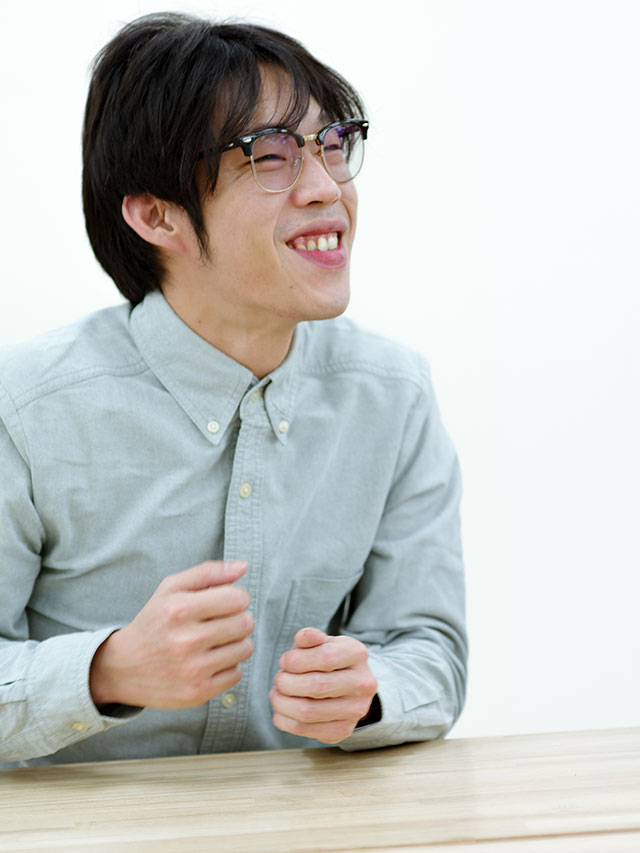
Vision for the Future
Fujiwara: You have done a variety of work in several different places so far, and now you are attending TPAM again. I expect that you will continue being active internationally as well as in Thailand in the future. Finally, if you have some sort of vision at the present time, I'd definitely like to hear about it.
Thanapol: Right now I am in the middle of creating a new piece that I plan to stage in 2018. What I'm interested in now is the "right wing." The earth is undergoing a variety of changes, as social problems are occurring in several different countries, and a turning point is coming. For example, Great Britain is withdrawing from the European Union, President Trump has taken office in the United States, in Japan there's the issue of the Self Defense Forces, in Thailand we have problems with the military regime, and there are refugee problems occurring all over the place. It feels to me almost like the world is trying to go back to the Middle Ages. And if we continue like this, a time will come when we will return to the Middle Ages.
I wondered, for example, what contemporary dance would be like forty years from now. I thought, if we perform the contemporary dance of forty years from now in today's society, what would the people watching it think? Dance is something that undergoes changes along with the times and the society. And so, if we perform a dance of the future now, I'm interested to see what the audience of today would feel and what they would sympathize with.
I am spending a year creating the piece, and then I think we'll show it in Thailand first. Then I'm searching for a place where we can perform it after that.
Fujiwara: I suppose that means it's possible we might be able to see it in Japan, right?
Thanapol: There is that possibility.
Fujiwara: I hope so. Because the theme of that piece would be relevant for Japanese as well, and it poses a compelling question. Thank you for your time today.
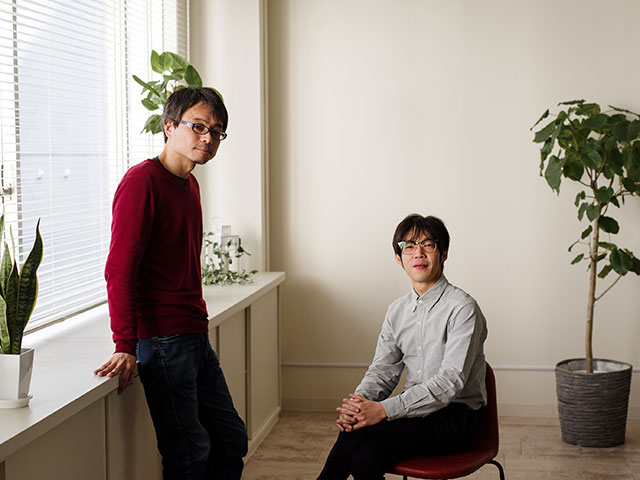
At Unklothospace Yokohama, on February 15, 2017
Interviewer: Chikara Fujiwara
Born in Kochi, Japan in 1977. Theater & dance critic, head of BricolaQ. He co-authored Engeki Saikyo-ron: New Currents in Japanese Contemporary Theater (2013) with Kyoko Tokunaga, and they jointly operate the Engeki Saikyoron-ing website. He has appeared in contemporary theater section of NHK Yokohama's radio "Yokohama Sound Cruise." Additionally, he sometimes works as a curator, mentor, and dramaturg, for example as the program director of Honmoku Art Project 2015, and as the captain of APAF Art Camp 2015, among others. He has also produced ENGEKI QUEST, a flaneur-style tour project, in various cities including Yokohama, Kinosaki (Japan), Manila (Philippines), Düsseldorf (Germany), and Ansan (Korea). He launched a new project Woman in A Port and performed at KARNABAL 2017 in Manila. He is one of the Senior Fellow of The Saison Foundation since 2017. He currently lives in Yokohama.
Translator: Miyako Maria Takahashi
Photo: Naoaki Yamamoto






